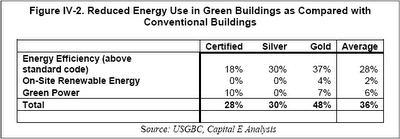$250,000 Option to Buy Midtown for $6 Million
Last week Bob Duffy announced a bold plan to secure a $250,000 option to buy Midtown Plaza for $6 Million by February 13, 2007. Everyone knows that downtown Rochester will never become the bustling place that it once was until the Midtown and Sibley buildings have been intelligently redeveloped. The black hole of vacancy they create in the city's center is a cancer that scares off businesses and residents alike. I desperately want them both to be addressed. The question is how, and is this option the answer. Let's look at how this has played out to date.
Midtown was purchased in 1997 for $23.5 million and due to a steady exodus of tenants the owner filed for bankruptcy and the lender, Blackacre, took possession of the property in 2001. By 2005 the Rochester Downtown Development Corp. estimates that Midtown is nearly 90% vacant. Midtown Rochester Properties (the entity formed to manage the property) found out this year that the only remaining anchor tenant, JP Morgan Chase, will be moving out in the spring. The rents from the property can no longer cover even the property taxes. Property manager Lawrence Cohen tells the city in a letter dated November 9 that he is, "pleased to offer the City of Rochester the option to buy Midtown Plaza." As a real estate investor, I'd be pleased to dump a giant liability on someone else and charge them a premium to take it too!
In their defence, Bob Duffy and City Council, have the best intentions for Midtown. I know they want to step in and take control over what happens with the development there. The problem here is the nature of the deal. First a lesson in options. A buyer pays an agreed upon amount of money for an option. That option locks the purchase price and terms of sale for a period of time stipulated in the option contract. In this case it is a laughable 90 day window. Most options are measured in years, unless immediate action for development or flipping the property is planned by the buyer. In this case the city is paying the seller a non-refundable $250,000 that gives them the exclusive right to pay an additional $5,750,000 to buy Midtown before February 13th.
The D&C reported that the city worried about less than reputable developers buying Midtown and simply sitting on it to collect what little rents are coming in. I say we should be so lucky. Any developer who would buy a property with tens of millions of dollars in deferred maintenance and asbestos abatement liability coupled with roughly $800,000 dollars in annual tax liability will have to default on the taxes to break even. At that point, the city can take back Midtown for only the cost of completing the foreclosure. Another thing to consider is that the current owner is actually paying the taxes and is current on them. If the city buys the building, we loose nearly a million dollars a year in tax revenue.
City Council should either counter offer Midtown Rochester Properties LLC with a $25,000 option price with all the same terms, or call their bluff. Vacant buildings with a fraction of the risk exposure and complexity to rehabilitate sit on the market for years in this city. Let them try to sell it. After the city has collected another $800,000 in taxes next year, make an offer to buy it for $3 Million. For a 90% vacant asbestos liability needing tens or hundreds of millions of dollars in renovation that may still be too much. Furthermore, the city is about to pay $250,000 for the option before it actually conducts the due diligence to see what condition the property is in, what the rent rolls look like, or even have their consultants develop an informed estimate of fair market value.
If an employee of mine bought a $250,000 option before doing the due diligence and having all the information I would fire them on the spot.

